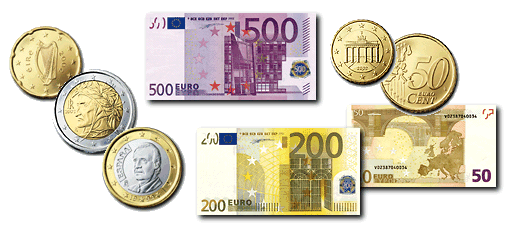European Union Agrees to Greek Bailout
Feb. 21, 2012
Leaders of European Union (EU) nations, meeting in Brussels, have agreed to a 130-billion-euro ($170-billion) bailout of Greece and a write-down of its national debt by at least 107 billion euros ($145.5 billion). The deal is intended to save Greece from defaulting (failing to pay debts when due). Greece’s national debt currently stands at 160 percent of gross domestic product (GDP). GDP is the market value of all goods and services produced in a country in a given year.
The debt write-down involves private bondholders–primarily banks and other financial institutions–taking losses of as much as 70 percent. They will exchange their current holdings for new Greek bonds of a lower value: 30-year bonds with an interest rate of about 3.75 percent. The incentive behind the bondholders’ acceptance of the write-down is simple–30 percent of value is better than nothing at all.

Coins and bills of the euro, the common European currency, went into circulation on Jan. 1, 2002. The euro has replaced the individual currencies of 17 member nations of the European Union. European Central Bank
In exchange for the loan and write-down, Greece faces yet more austerity measures (strict rationing to conserve resources): steep public-sector wage cuts; the layoff of some 150,000 public employees by 2015; a 20-percent decrease in the minimum wage; and a slashed defense budget. The measures are intended to reduce Greece’s debt to 120.5 percent of GDP by 2020.
In what is seen as a humiliating and unprecedented intrusion into Greece’s sovereignty, permanent monitors from the EU, the European Central Bank, and the International Monetary Fund are to take up residence in Athens to ensure Greek compliance. Greece must also amend its constitution to give priority to repaying the bailout loan over the funding of all government services.
Additional World Book articles
- Crisis in the Eurozone (a special report)
- Europe 2010 (Back in Time article)
- Greece 2010 (Back in Time article)


